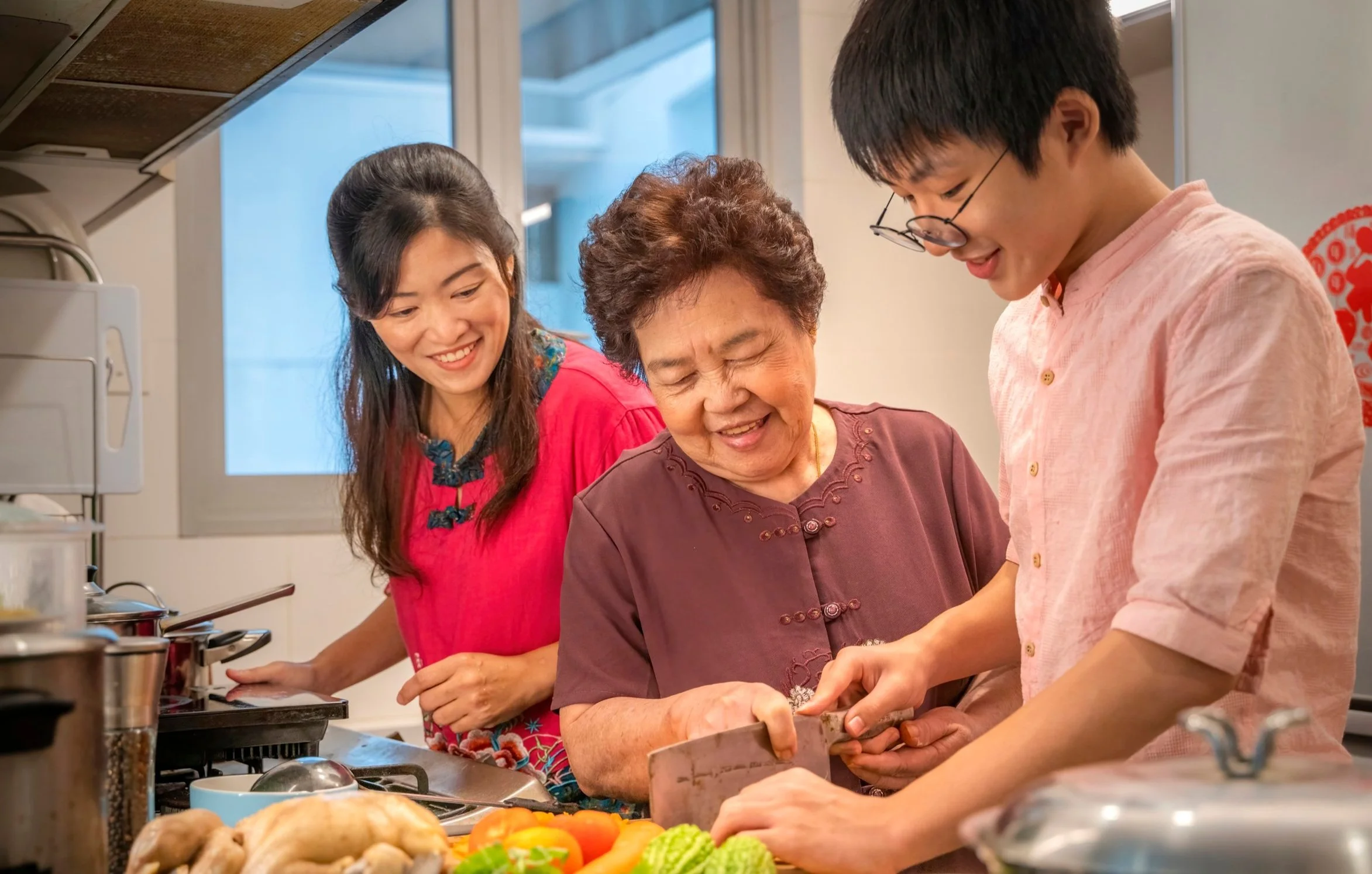31-Day AAPI Heritage Month Engagement Guide
In the United States, Asian American and Pacific Islander (AAPI) or Asian/Pacific Heritage Month is celebrated in May every year. Similar to other heritage or history months, the AAPI Heritage Month originated in Congress. The month of May was chosen to commemorate two key days: May 7 and May 10. May 7, 1843 marks the immigration of the first Japanese to the United States. May 10, 1869 was the date on which the transcontinental railroad was completed. A vast majority of the people who laid the tracks of the railroads were Chinese immigrants who were not paid the same wages as their white counterparts even though the Chinese laborers worked longer hours and paid for their own food. While it was not referenced in the legislation that designated the month of May as Asian/Pacific Heritage Month, on May 6, 1882, the Chinese Exclusion Act was signed into law. It was the first major legislation restricting voluntary immigration by people of a specific nationality to the U.S.
According to the White House, “Asian Americans, and Native Hawaiians, and Pacific Islanders make our Nation more vibrant through diversity of cultures, languages, and religions. There is no single story of the AANHPI experience, but rather a diversity of contributions that enrich America’s culture and society and strengthen the United States’ role as a global leader. The American story as we know it would be impossible without the strength, contributions, and legacies of AANHPIs who have helped build and unite this country in each successive generation.”
In the Christian tradition, the Pentecost is also celebrated in the month of May; and what perfect timing! Pentecost marks the day in which the Holy Spirit descended upon Jesus’ apostles and other members of the early church, sealed them forever as God’s children, and gave them the gift of speaking in other tongues. It has been said that Pentecost is the reversal of the judgment at Babel in Genesis 11. At Babel, people came together to make a great name for themselves, but God came down, confused their languages, and scattered them across the earth. At Pentecost, God came down again, but this time to bless, unite, and send forth his people to grow multiracial churches as we see throughout the Book of Acts.
Asia is the largest continent and the Pacific is the largest ocean in the world. To only have a month to celebrate every tongue, tribe, people, and nation from these regions is not enough, but hopefully, this calendar of engagement suggestions will help us grow in our knowledge and love for Asian Americans and Pacific Islanders and their contributions to our nation, our communities, and our church. Let us not forget the challenges that our AAPI brothers and sisters have faced, for it is in knowing these issues that we begin to understand how exactly we can come alongside them and other ethnic groups who face similar struggles. Most importantly, through our collective learning and engagement in AAPI Heritage Month, may we learn to truly “accept one another... just as Christ accepted you, in order to bring praise to God (Romans 15:7, NIV).”
31-Day AAPI Heritage Month Engagement Guide
Kick off AAPI Heritage Month by listening to this blessing sung by people from over 30 churches representing 21 Asian languages.
Read the poem Inheritance Remembered by Leena J., as published on the Asian American Christian Collaborative.
Read these heavily researched factsheets about East Asians, South Asians, Southeast Asians, and Native Hawaiians and Pacific Islanders that deconstruct harmful stereotypes of different AAPI groups in the media.
Learn about the importance of lament in Christian living from Soong-Chan Rah, author of many Christian books including: The Next Evangelicalism: Freeing the Church from Western Cultural Captivity, Many Colors: Cultural Intelligence for a Changing Church, Prophetic Lament: A Call for Justice in Troubled Times, Return to Justice: Six Movements that Reignited Our Contemporary Evangelical Conscience, Unsettling Truths: The Ongoing, Dehumanizing Legacy of the Doctrine of Discovery, and Forgive Us: Confessions of a Compromised Faith.
Learn about the contribution of Asian American women musicians and performers to the world of music.
On May 6, 1882, President Chester A. Arthur signed into law the Chinese Exclusion Act, the first major law restricting voluntary immigration to the U.S. Like Chinese immigrants did for generations, other hopeful immigrants to the U.S. continue to struggle against unjust laws and harmful abuse rooted in racial prejudice. Learn about the Chinese Exclusion Act.
Learn about the Chamorro people of the Pacific Island of Guam.
Consider the negative impact of tourism on Hawaii and Hawaiian women.
For families: Watch Moana, a Disney animated movie about a Polynesian girl who was chosen by the ocean to save her island from blight. It is recommended that for movies and shows, people gather with people who may not have streaming subscriptions or TVs.
Enjoy some Haiwaiian-style barbecue at Waikikie Hawaiian BBQ.
Watch the PBS Series Asian-Americans, which has been described as “a thoughtful, compelling documentary series on the history of Asians in America.”
For families with older children: Watch Ms. Marvel, a Disney+/Marvel coming-of-age television miniseries about a teenage girl who gains superpowers and learns about her family’s place in history, particularly the Partition of India. The series also touches upon the discrimination that Muslim communities in America face from law enforcement post-9/11.
For kids grades 4-8: Read the beautifully illustrated graphic novel “Pashmina” by Nidhi Chanani which is about a teenage girl whose mother emigrated from India years ago, leaving her father behind.
Read “Bakht Singh of India,” by T.E. Koshy, which tells the story of an Indian evangelist who established indigenous local churches patterned after New Testament principles. Singh’s work helped dispel the misconception that Christianity is a Western religion and not relevant to the people of India.
Enjoy South Asian food at Chai Pani in Decatur or Ruchi Bangladeshi Cuisine in nearby Brookhaven/Chamblee.
Learn about the forced relocation and internment of Japanese Americans in what President Roosevelt himself admitted were concentration camps during the second World War. Fuller Seminary MDiv student September Penn says in this video, “Take the time and [feel] what someone else has endured.”
Watch this video of the Japanese-American artist Makoto Fujimura sharing how he came to understand the beauty he creates through art by understanding and accepting the love and sacrifice of Jesus Christ.
If you walk into a doughnut shop in California, the chances are it's owned by a Cambodian family. That's because of a refugee, Ted Ngoy, who built up an empire, and became known as the Donut King, only to lose it all.
Watch Minari, a semi-autobiographical film about a Korean-American family’s “resilience in adjusting to new cultural rules, lifestyles, and living environment” in rural Arkansas in the 1980s. Much like the parents in this film, many refugees who resettle in the Clarkston area work in the poultry industry. Consider their lived experience as our church partners with organizations that support them.
Read The Spirit Catches You and You Fall Down by Anne Fadiman, which tells the story of a Hmong refugee family and their interactions with the American healthcare system as they seek help for their baby who has a severe form of epilepsy. Pray for our church members who work in healthcare, especially those who work with refugee populations, that they may be conduits of God's love and healing to all underserved individuals and communities in their care.
Watch the unapologetically Asian-American film Everything Everywhere All At Once which has swept the recent Academy Awards. Please note that this movie is R-rated and not suitable for children.
Give yourself permission to dance by listening to Permission to Dance by the Korean pop group BTS
For families: Watch the Disney animated film Mulan and sing along to one of the songs in the film, I’ll Make A Man Out of You while doing your chores.
Have you ever wondered why AAPI people love food so much? Read the memoir Crying in H-Mart by Michelle Zauner or watch this video of her on “CBS Sunday Morning.” For more fun, visit the H-Mart in Doraville or Duluth when their food courts are open.
Read this piece written by transracial adoptee, Tiffany Henness, about embracing one’s full ethnicity as God-given and valuable.
Eat some traditional style barbecue with an Asian twist at the AAPI-owned restaurant Sweet Auburn Barbecue
Unpack the tension experienced by a Black employee of an Asian-owned beauty supply shop in Chicago. Then read this article on Black-Asian Christian solidarity and learn how Black and Asian Christians, as well as other Christian brothers and sisters, can display Christ’s love to the world by fighting racism together.
Read the book The Sum of Us or watch this TED Talk by Heather McGee to understand why minorities and even white people do not have to fight over the same small slice of pie to flourish and thrive in America. "Our fates are linked," she says. "It costs us so much to remain divided."
Watch the three-part series Interconnected: Confronting Racial Prejudice between Asian American and African American communities, an AAPI Heritage Month Panel Series co-hosted by the Asian American Christian Collaborative and Be the Bridge. This 3-part series maps out the history of inter-minority conflict between Asian Americans and African Americans; it addresses the problem of racial biases from a biblical perspective; and, finally, it considers paths of healing and solidarity moving forward.
Read Psalm 17: A Prayer for Asian Americans, and pray the psalm as you wrap up AAPI Heritage Month.
Reflect on everything you have learned from your thoughtful engagement with AAPI Heritage Month and ask the Lord for wisdom on how you can love your AAPI brothers and sisters better. If you belong to the AAPI community, ask the Lord how you can embrace your heritage as a God-given gift that you can delight in and glorify God with.

